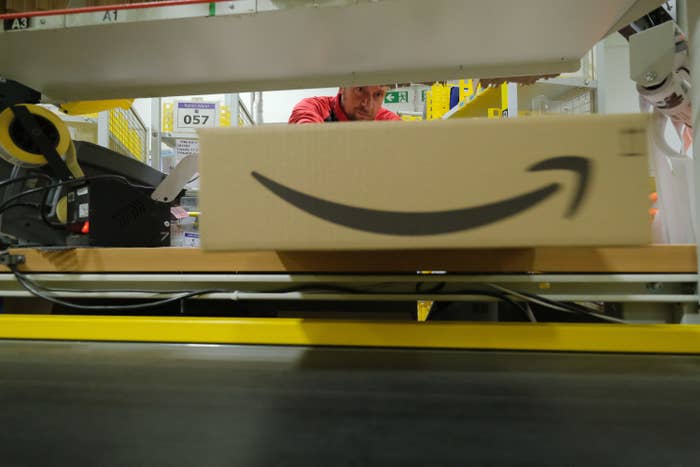
Amazon delivery station employees in Sacramento are demanding fair treatment and benefits equal to those of other Amazon workers. By Sunday, more than 200 workers had signed a petition requesting an explanation for why they receive fewer paid days off per year than typical Amazon warehouse workers.
These workers, who sort and prepare packages for final-mile delivery in a station called DSM1, said they were told by Amazon managers that they get less paid time off (PTO) because they are classified by the company as Class Q workers. The Sacramento employees said they were previously unaware of any such classification.
“Despite acknowledging that PTO is critical to our personal well-being, Amazon classifies DSM1 workers as ‘class q’ and ‘class m’ so they can deny us PTO even though we work the same hours as regular employees,” their petition reads. “By denying DSM1 workers PTO, Amazon is declaring that they are not concerned with our personal well-being.”
In response, Amazon told BuzzFeed News that it “maintains an open-door policy that encourages employees to bring their comments, questions, and concerns directly to their management team for discussion and resolution, and we’re glad to have open communication with employees in Sacramento.”
“Amazon is proud to offer great wages paying $15 per hour or more,” a company spokesperson said in an email statement. “Benefits vary based on a variety of factors but if someone wanted to move to a role that offered regular, full-time benefits we expect to have more than a thousand of those roles in Sacramento throughout the year.”
The organizing efforts by Amazon workers in Sacramento first became public in October, when the Verge reported that a worker had been fired for exceeding the limit on her allotted time off after her mother-in-law died following a hospital stay. The worker, identified as Sandra, has since been reinstated, but employees continue to be frustrated by what they see as an insufficient allotment of even unpaid time off and an overly strict policy of terminating workers who go over their limit.
Their frustration is heightened by Amazon’s past public statements about the health and education benefits it offers to full-time warehouse workers at its massive fulfillment centers.
The Amazonians United Sacramento group isn’t the only one pushing the retail giant for change. Workers at a similar delivery station in Chicago called DCH1 Amazonians United have also pressed for improvements to workplace safety via a petition and demanded a sit-down with management. In both Chicago and Sacramento, Amazon has responded by bringing in employee relations staff and offering to host employee roundtables, but has refused to meet formally with organized groups of workers.
And in July, fulfillment center employees in Minneapolis working with the Awood Center, a labor rights organization serving East African immigrants, went on strike during some of Amazon’s busiest delivery days to demand reduced quotas and better treatment. Workers at that facility have been organizing walkouts since late 2018.
Managers at Amazon, which opposes its workers organizing, undergo training to prevent workers at delivery stations and fulfillment centers from unionizing.
